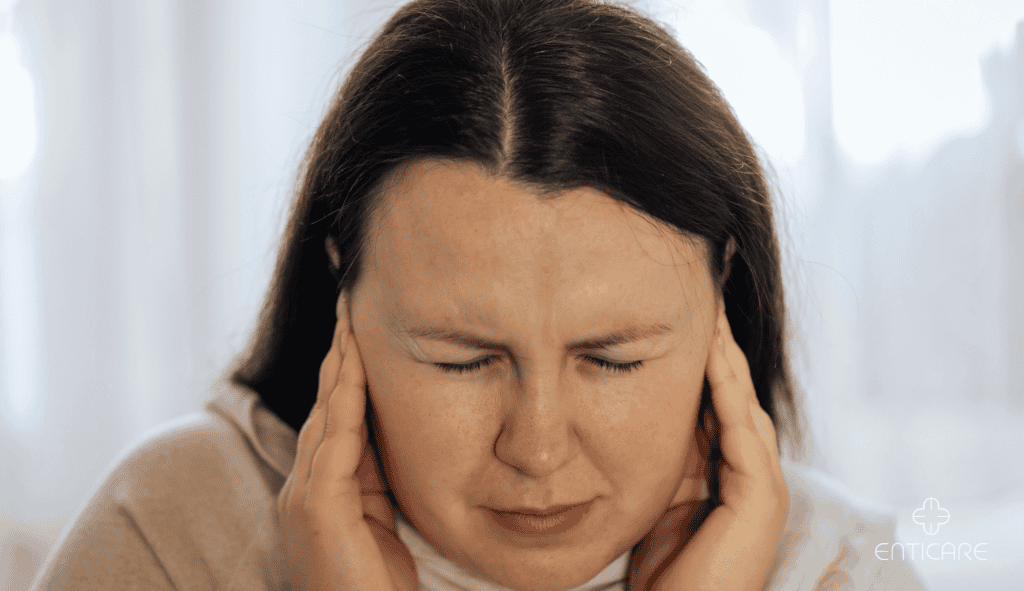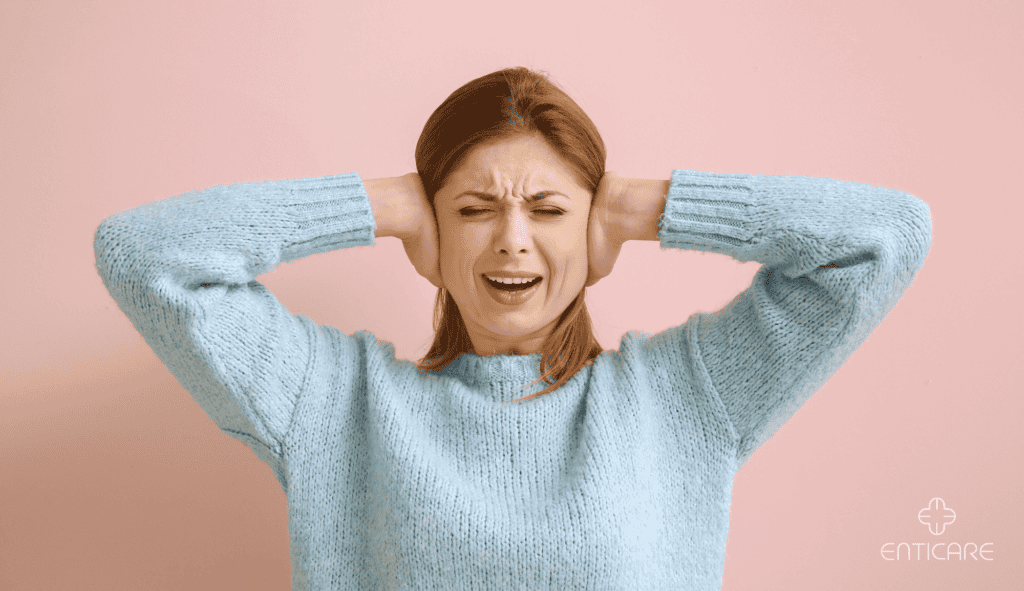Ringing in the ears, also known as tinnitus, can be a stressful experience, especially for those with an anxiety disorder. When linked to anxiety, tinnitus may worsen, creating a feedback loop that further amplifies stress and discomfort. This blog explores how anxiety and tinnitus interact, what causes the symptoms, and effective coping methods.

What Is Anxiety-Related Ringing in the Ears?
Anxiety-related tinnitus can be confusing. Understanding it involves examining how anxiety affects the nervous system and your hearing.
How Anxiety Triggers Tinnitus
Anxiety often leads to physical symptoms, such as muscle tension and increased blood pressure, which can contribute to the perception of ringing in the ears. In some cases, the fear of an anxiety attack can heighten the perception of tinnitus, further affecting sleep quality and overall well-being. When stress levels rise, blood flow to the head changes, which may lead to or worsen tinnitus.
The Role of the Fight-or-Flight Response
During anxious moments, your body enters “fight or flight,” and heightened awareness can make you hyper-focused on physical sensations, including subtle ear ringing.
Hyperawareness and the Brain’s Response
Anxiety can make you more aware of normal body functions, like the sounds in your ears. This increased focus can turn a minor sound into a persistent annoyance.

Why Anxiety Causes Ringing in the Ears
Multiple factors link anxiety to tinnitus. Emotional stress can exacerbate chronic tinnitus, making the symptoms more persistent and challenging to manage. These underlying mechanisms help explain why people with anxiety often report ringing or buzzing in their ears.
Increased Blood Pressure and Heart Rate
When you experience stress, your blood pressure and heart rate rise, impacting blood flow near the ears and sometimes leading to ringing sounds. This can sometimes lead to pulsatile tinnitus, where the ringing aligns with the heartbeat.
Hormonal Impact on Ear Sensitivity
Stress hormones, like cortisol, increase during anxiety and can affect ear sensitivity. Stress-related tinnitus can arise during high-stress situations, and hormonal changes can exacerbate these symptoms. Higher cortisol levels may also worsen existing tinnitus or trigger new sensations.
Muscle Tension
Many people carry anxiety in the form of tense muscles around the neck, shoulders, and jaw, which can put pressure on nerves and blood vessels connected to the ear, leading to or intensifying tinnitus.
Tinnitus Symptoms of Anxiety-Induced Tinnitus
Anxiety-induced tinnitus has unique symptoms and characteristics. Recognizing these symptoms can help you determine if your tinnitus relates to stress.
Intermittent or Sudden Onset
Anxiety-induced tinnitus may come and go, often triggered by specific situations that increase stress levels. This ringing can occur in one or both ears and often varies in intensity. Sudden, intense ringing often occurs after a particularly stressful event or heightened anxious state.
Accompanied by Physical Tension
People with anxiety often feel a physical tightness in their jaw, neck, or face muscles, which may increase the intensity or awareness of tinnitus.
Amplified in Quiet Settings
Anxiety-related tinnitus tends to become more noticeable in quiet settings when there are no distractions. At these times, the brain may focus more on the ringing, making it feel louder.

Coping Strategies for Anxiety-Related Tinnitus
You can find relief from anxiety-induced tinnitus through various coping techniques, from relaxation methods to professional therapy.
Mindfulness and Relaxation Techniques
Practices like deep breathing, progressive muscle relaxation, and meditation can help reduce anxiety levels, which in turn lessens the severity of tinnitus.
Cognitive-behavioral therapy (CBT)
CBT addresses the underlying thoughts and behaviors associated with anxiety. Through therapy, you learn to manage anxious thoughts that can make tinnitus worse, creating a calmer mental environment.
Sound Therapy and White Noise
Listening to white noise or calming background sounds can drown out the ringing in your ears, making it less noticeable. Hearing aids can also mask tinnitus sounds, providing relief for many individuals. Apps and devices that generate white noise effectively mask tinnitus symptoms.
When to Seek Professional Help
Although anxiety-related tinnitus often improves with lifestyle changes, some cases require professional support. Understanding when to consult a healthcare provider is critical.
Persistent Symptoms
If ringing in the ears persists despite trying self-help strategies, it may indicate the need for professional assistance to address both tinnitus and underlying anxiety.
Tinnitus with Severe Anxiety Symptoms
Intense anxiety that affects daily life and coincides with tinnitus may benefit from therapy, medication, or other treatment options. Mental disorders such as anxiety and depression are often prevalent among those experiencing severe tinnitus.
Desire for Long-Term Management Tools
Tinnitus retraining therapy (TRT) can be an effective long-term management tool for those who want ongoing tools and strategies to manage anxiety and tinnitus. It helps individuals habituate to the ringing sounds. Scheduling an appointment with a specialist can be highly beneficial.
Start Your Journey Toward Relief
Understanding the link between anxiety and tinnitus opens the door to effective management strategies. If you need personalized support, our specialists at Enticare offer comprehensive care. Schedule an appointment with Enticare to take the next step toward relief.

